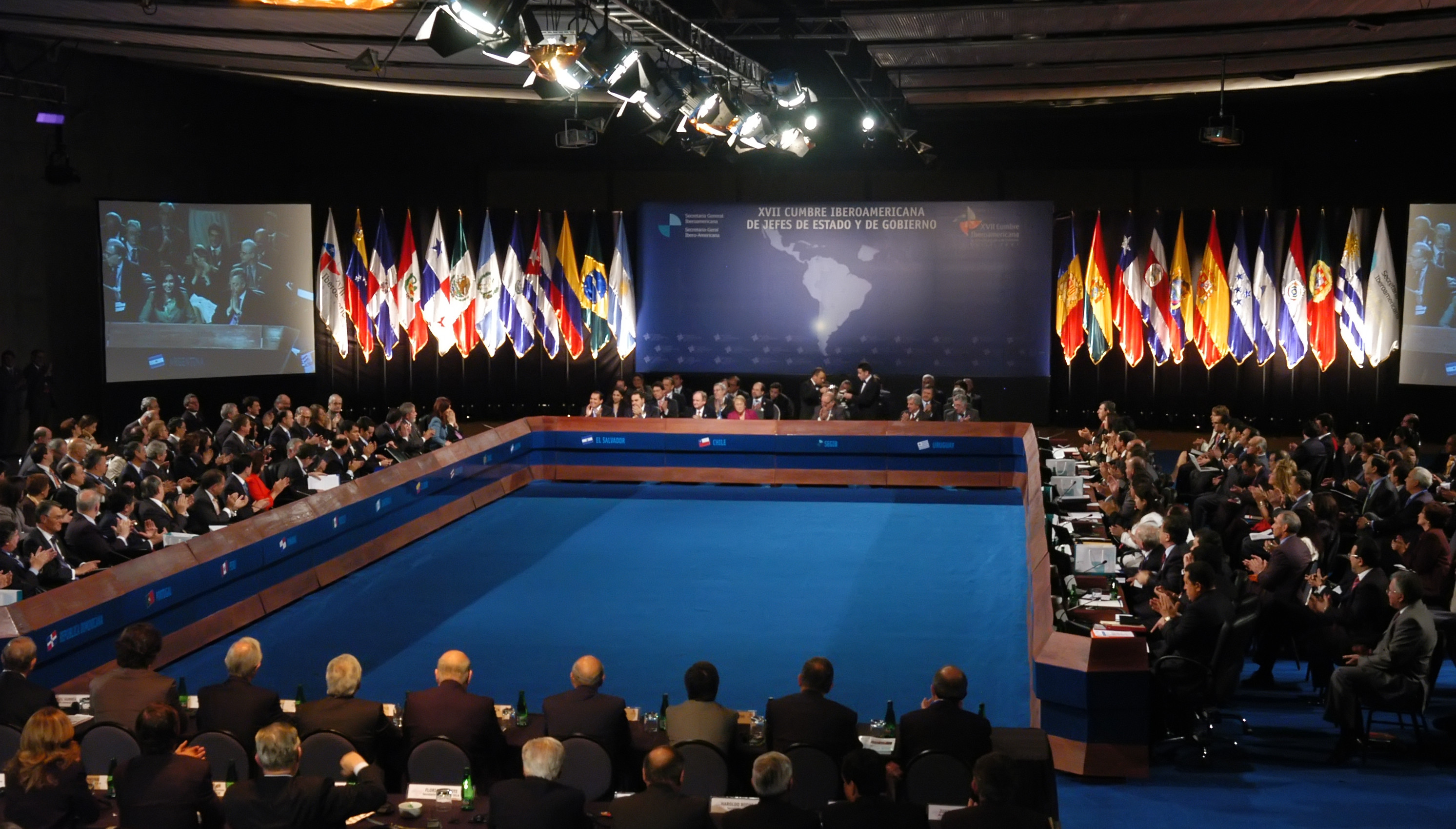On October 18th, the 23rd Ibero-American Summit met in Panama, bringing together Latin American and European leaders for two days of important political, social and economic discussions and policy-making.
Or at least that was the plan. In theory, the summit is meant to bridge the gap between South America and the Iberian Peninsula, providing an essential tool for cross-Atlantic commerce and dialogue. In practice, however, the yearly event has become almost irrelevant, and will soon cease to exist unless Ibero-American leaders decide to thoroughly reshape it and grant it new purpose.
Established in 1991, the Ibero-American Summit is one of the many experiments in globalization that flourished after the collapse of the Berlin Wall. At the time, Latin America was much poorer and lacked access to important markets. Meanwhile, Spain and Portugal were still enjoying their status as model Third-Wave democracies, and were on the eve of greater economic integration with the rest of Europe. Consequently, the idea of a cross-Atlantic summit seemed to be the perfect way for the former colonial powers to show Latin America the way towards their enviable success.
Flash-forward to 2013: the economies of Spain and Portugal are crippled after years of Eurozone crisis. South America is awash in foreign investments from the U.S., Asia and other EU countries. Multinational corporations from the continent (aptly titled Multilatinas) are now investing in Europe and elsewhere. Perhaps most importantly, the former colonies have created so many multilateral institutions between themselves that they can hardly spare any attention for the summit that seemed so important twenty years ago.
The rise of the Community of Latin American and Caribbean States (CELAC), Mercosur, The Pacific Alliance, and several other trade blocs across Central and South America make the Iberian countries much less important in economic terms — the Summit has not even established a free-trade treaty between member countries. Likewise, developments of the last couple of decades have altered the political climate these types organizations operate under. New Left leaders like Venezuela’s Nicolás Maduro and Bolivia’s Evo Morales have little patience for what they see as neo-imperialist forays by former colonial powers attempting to co-opt the region’s economic growth.
Political shifts have also made Latin America more divided than before, with the rivalry between the Mercosur and Pacific Alliance trade blocs being just one of the clashes between left-leaning countries and those that have adopted a more neo-liberal political mindset.
Facing a more powerful, divided, and utterly different Latin America, the Summit — a reflection of Ibero-American relations — has languished. Of the 22 member states, only 11 sent representatives to Panama this year. The agenda for the meetings — established in part by Chilean ex-president and Brown professor-at-large Ricardo Lagos — failed to produce substantive treaties or commitments. Starting in 2014, the Summits will now be held biennially, conveniently on the years between biennial CELAC — EU meetings.
Now that the Summit has been out-globalized and Spain and Portugal are no longer the economic players they once were, there are few reasons for maintaining the forum. Some have recommended that it focus its attention on building and maintaining cultural and educational ties rather than economic and political ones. While Spanish investments are not as important as they once were, thousands of Latin Americans apply to Iberian universities every year. On the other side of the Atlantic, highly trained Europeans suffering economic hardship are looking for more promising opportunities in the New World.
Ultimately, the Summit’s survival after its 2014 meeting in Mexico is not all that important to Ibero-American relations, which will continue to evolve as they have for the last twenty years through shared cultural, social, and economic spaces. Perhaps the lesson to be gained from the faltering organization is that in the ultra-globalized world of the 21st century, a distant shared history is no longer a base for special treatment.
